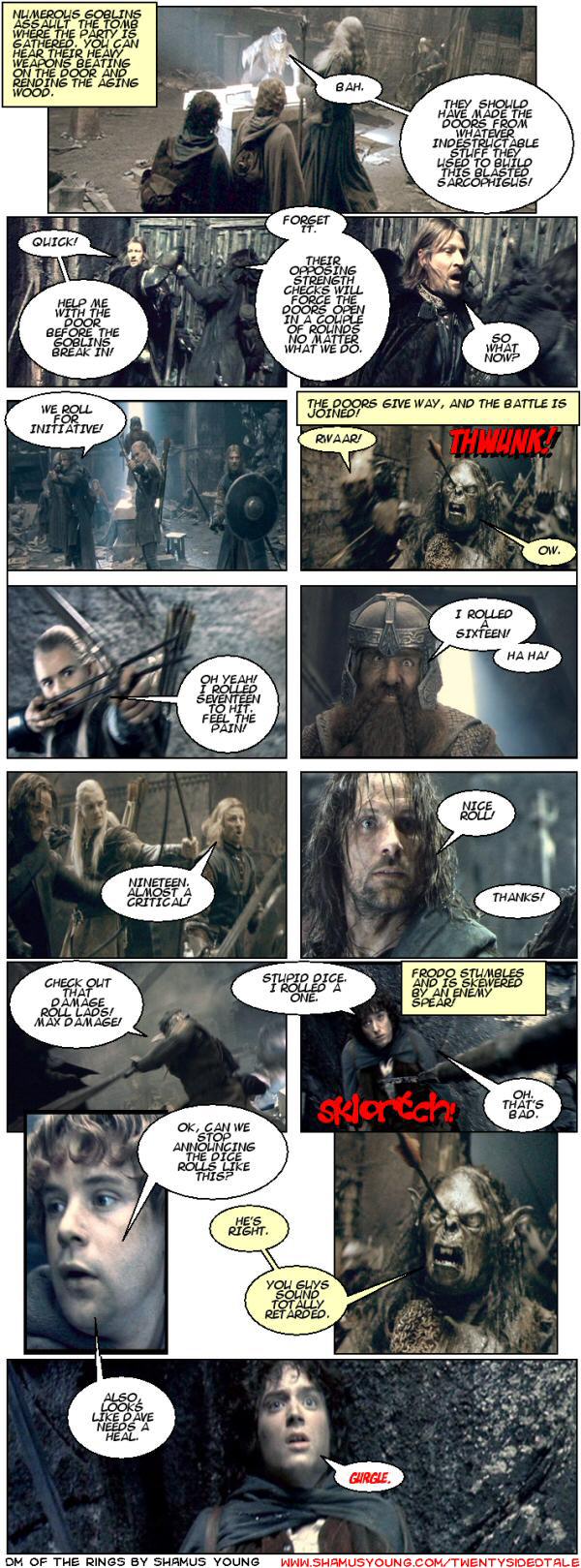I never liked your example.
<snip>
It ended because it ended because it will always end. If the same power hit 4 of your PCs they all have to come up with justifications -- almost certainly different.
<snip>
It does produce disassociation -- that's why the players try to fill the void with their justifications.
Narrations will be different, but I'm not sure why that's a problem. Narrations are different for AD&D saving throws too. (The cleric prays, the thief dodges, the fighter toughs it out.)
But I don't really understand your "void" comment, nor the language of "justification".
When this event occurred in play, I didn't have any pre-scripted dialogue in mind for the NPC. I just spoke the first taunt that occurred to me - "I already turned you into a frog once". And the player spoke back the reply without missing a beat - "But the Raven Queen turned me back." If I hadn't spoken the taunt (in character as the NPC), or if the player hadn't come up with the retort, then the ingame reason for the PC turning back would have gone unexplained. At least as I experience these things in play, explanation or "justification" is not in issue. Events unfold, presumably they have their rationales, most of the time those rationales don't need to be investigated very closely. (A player makes an attack roll and misses. Why? Literally missed? Parried or shield-blocked? Blow absorbed or deflected by armour? D&D generally doesn't care, and at least in my experience many misses therefore are not narrated in very much detail.) There is nothing particularly odd about impermanent magic in D&D, whatever the exact cause of the impermanence, and so it was not an event crying out for explanation. (As is often the case, I think this contrasts a bit with Come and Get It.)
The player of the paladin didn't narrate the reason for his reverting to his own form in order to justify it. He narrated it, in character, as part of a retort to his enemy and assertion of his god's power and favour. I don't see that as "filling a void". I see it as drawing on the permissions created by the mechanics to reinforce characterisation and "inhabitation" of the PC.
A player could say that a second use can't occur because the character hasn't eaten an orange. It doesn't make it true -- it's just an attempt to justify something that must exist because the game rules say it must.
If I were at your table and the paladin said that, I'd tell him it was really the "professional" I was with last night not his god that sved his bacon. And I'd be just as correct as he.
I don't agree that you'd be just as correct, or that there is no differntiating between "because no opening presented itself" and "because the character hasn't eaten an orange".
The fact that the mechanics don't, in and off themselves, settle the content of the fiction, doesn't mean anything goes. What we're talking about here is:
Exploration overall is negotiated in a casual fashion through ongoing dialogue, using system for input (which may be constraining), rather than explicitly delivered by system per se
There are other constraints on narration also - genre is the most obvious one - and there can also be hierarchies of authority. 4e gives ultimate authority on these matters to the GM (PHB, p 8):
When it’s not clear what ought to happen next, the DM decides how to apply the rules and adjudicate the story.
But sometimes - often, even - it
is clear what is going on in the fiction: for example, if the player of the paladin narrates a role for his PC's god in the action, and no one else at the table disputes it.



